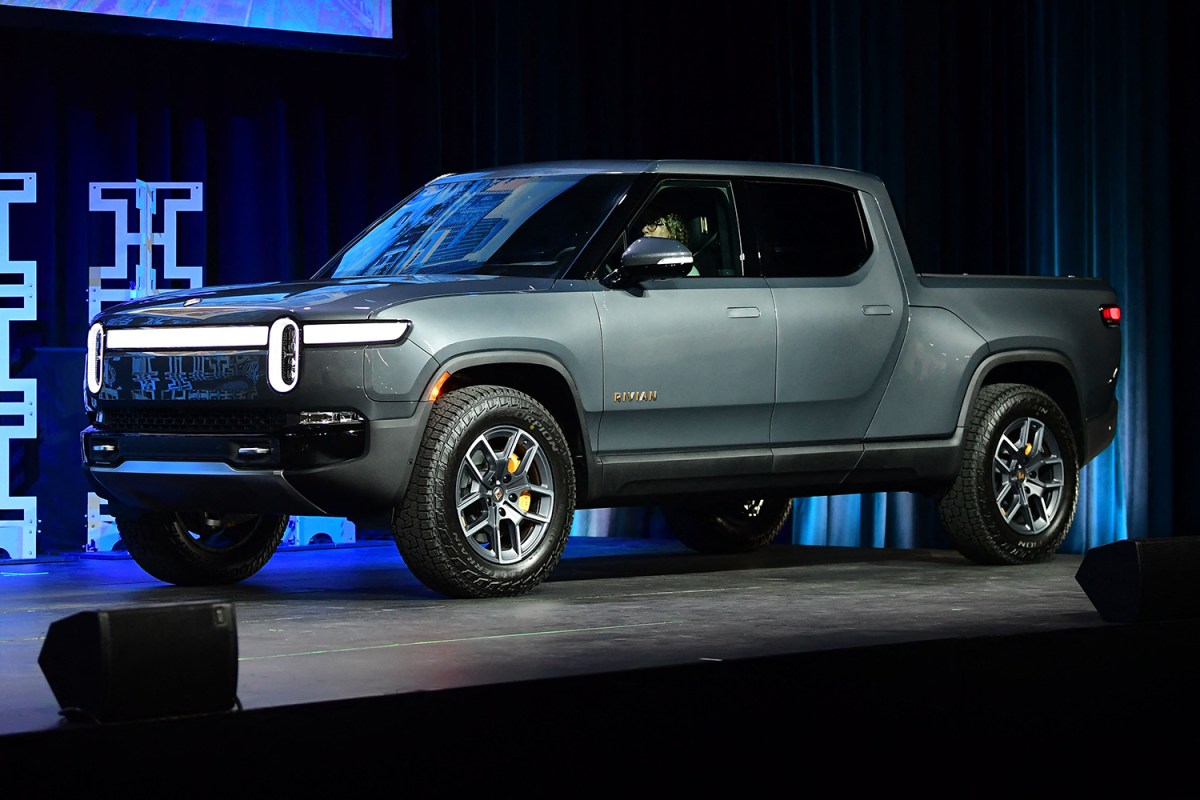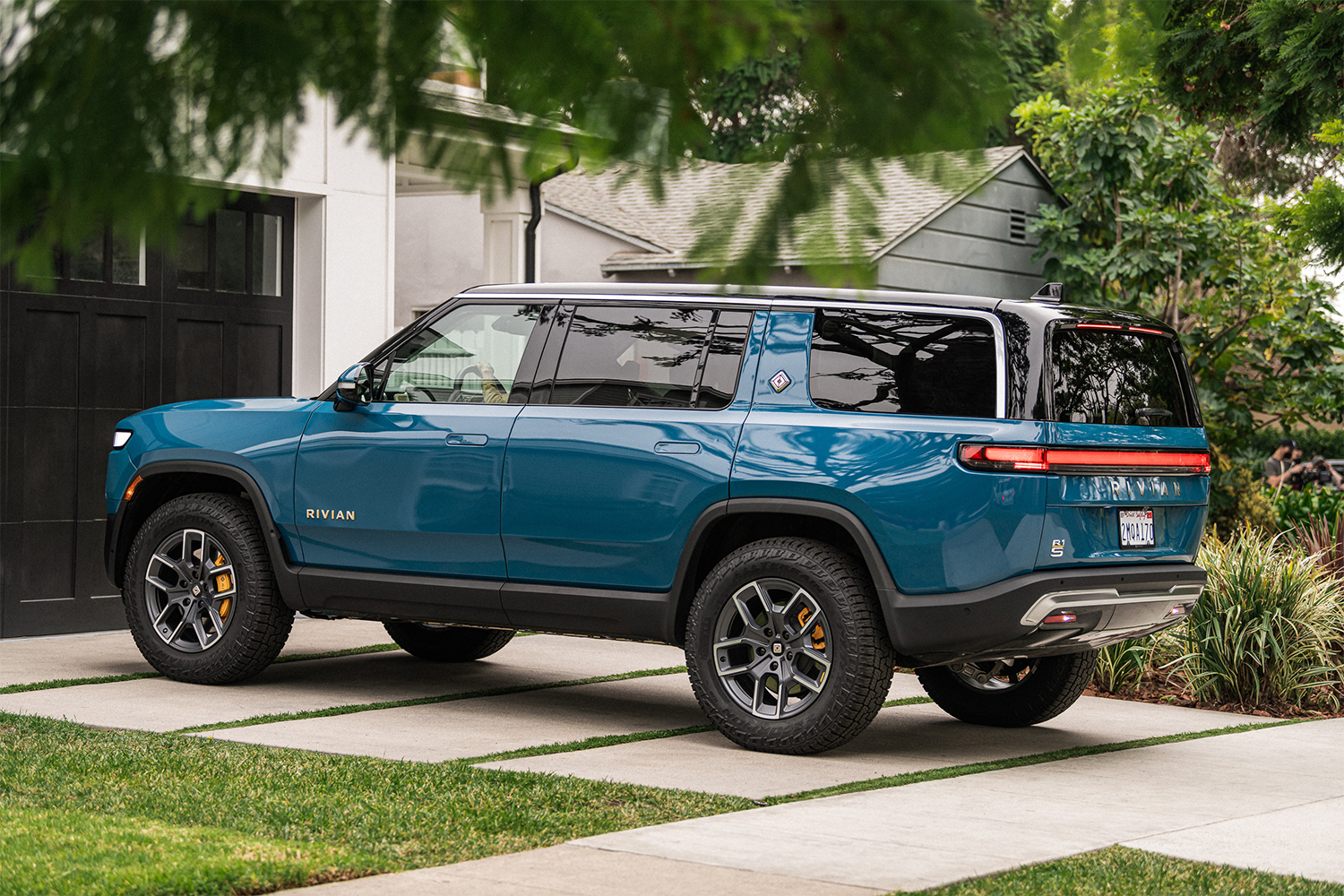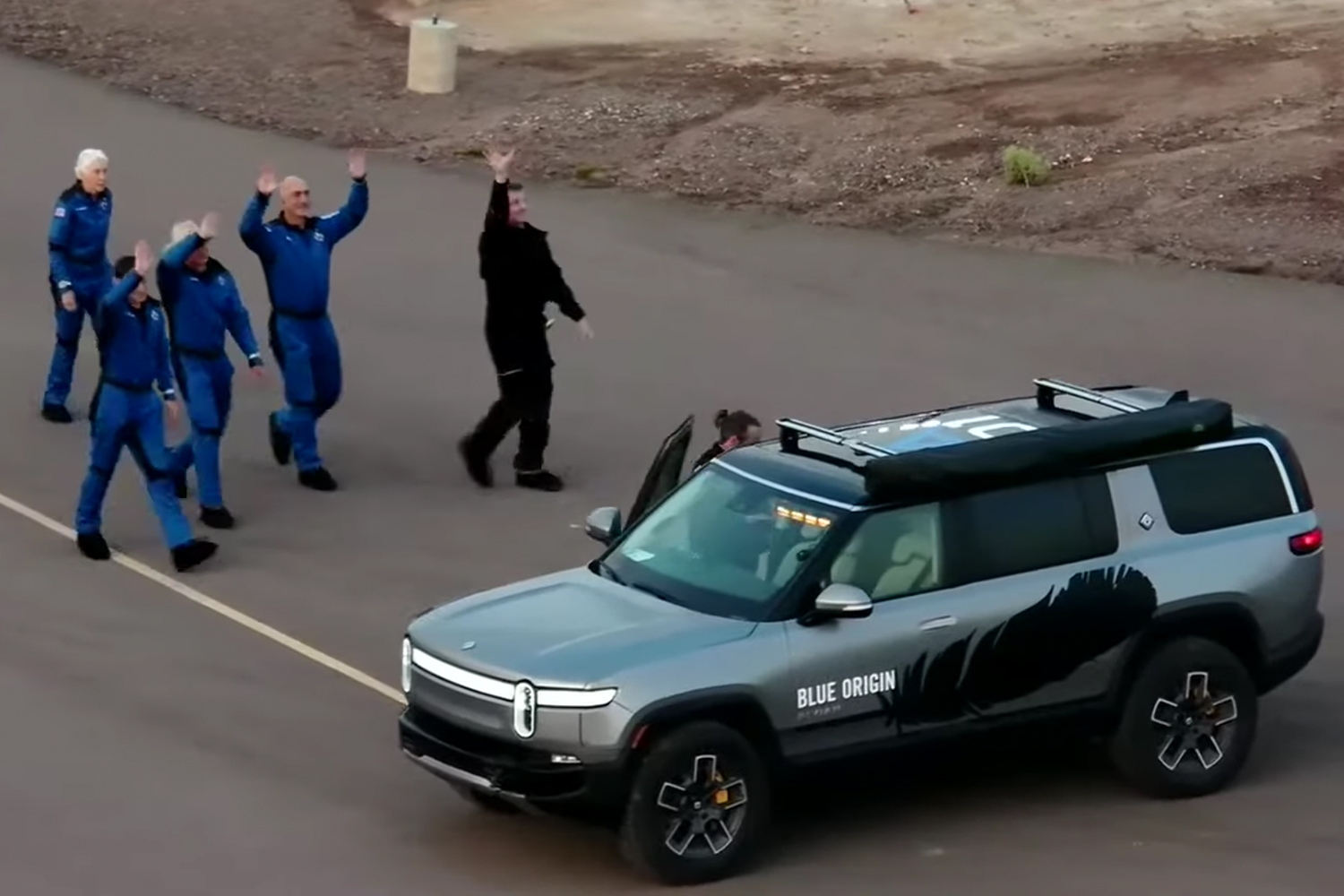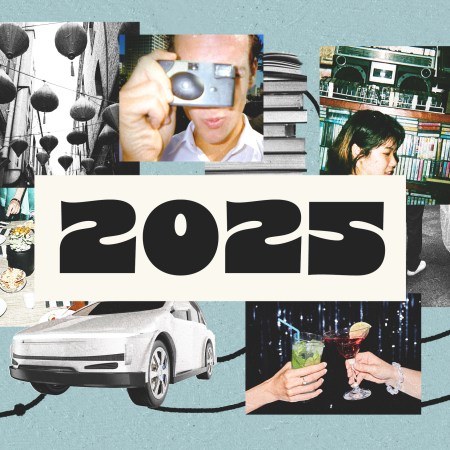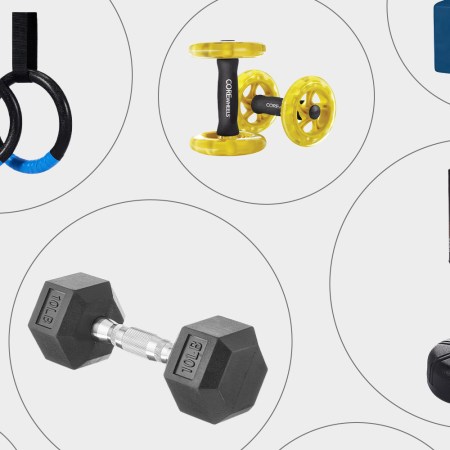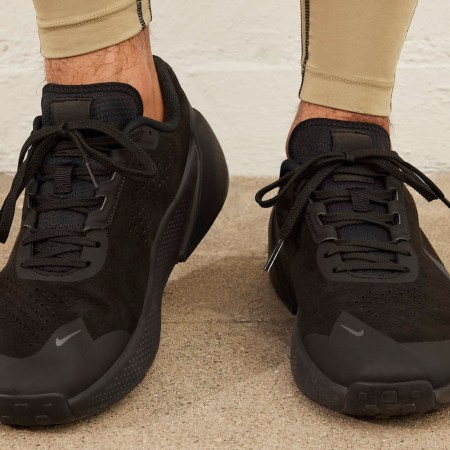When the electric vehicle company Rivian was eyeing a stock market debut back in September, Reuters reported they were aiming to raise between $5 and $8 billion. When the EV maker followed through with its initial public offering in November, it significantly beat expectations, raising about $12 billion in the country’s “biggest IPO since Facebook.” It seemed we had found a legitimate “Tesla killer.”
Four months later, that “Tesla killer” has turned into “a bad episode out of the Twilight Zone for the Street,” according to Wedbush Managing Director of Equity Research Dan Ives, as noted by Yahoo Finance. The comment comes in response to Rivian’s fourth-quarter earnings report for 2021 and outlook for 2022, in which the company said it expects to build just 25,000 vehicles this year, a much lower number than investors (and customers) were hoping to hear.
Those customers include regular people who preordered the all-electric R1T pickup truck, which MotorTrend called “the most remarkable pickup [they’ve] ever driven,” and the R1S SUV, both of which launched last year. The other big customer? Jeff Bezos. Under his direction, Amazon has ordered 100,000 electric delivery vans from Rivian and invested over a billion dollars.
With that kind of investment, Amazon is playing the long game. As for customers who preordered their electric adventure vehicles, they knew there was the possibility of multiple delays. But those delays have compounded, leading Rivian to slash its projected output in half for 2022 — and its stock market price to hit an all-time low on Monday morning before recovering slightly.
“To say the Rivian story has been disappointing to us (and the Street) so far would be an understatement,” Ives said.
Rivian is laying the blame at the doorstep of continued supply-chain woes, but hoping that growth will come once those are ironed out (and a new factory is up and running…in 2024).
“We believe that throughout 2022, the supply chain will be a fundamental limiting factor in our total output for the Normal Factory and that our manufacturing equipment and processes would have the ability to produce enough vehicles to deliver over 50,000 vehicles across our R1 and RCV platforms in 2022 if we were not constrained by our supply chain,” the company said. “Despite this, due to the supply chain constraints currently visible to us, we believe we will have sufficient parts and materials to produce 25,000 vehicles across our R1 and RCV platforms in 2022.”
Yes, that means even though the company has touted 83,000 preorders for the R1T and R1S, they’ll be fulfilling just a small percentage of those orders this year. That 25,000-vehicle production number also includes Amazon delivery vans (RCV stands for Rivian Commercial Van). And sorry to all you Rivian fans, but Amazon is more important to them than you.
Not all market analysts are as down on Rivian as Ives, though. “The company is one of the most viable among the start-up EV automakers and also a relative competitive threat to incumbent automakers (and possibly to other automotive-related verticals),” said John Murphy, an auto analyst at Bank of America, per Yahoo Finance.
The key word there: “startup.” To be a Tesla killer in this day and age, EV makers need to move on from volatile startups to contenders that can actually fulfill orders.
Thanks for reading InsideHook. Sign up for our daily newsletter and be in the know.
